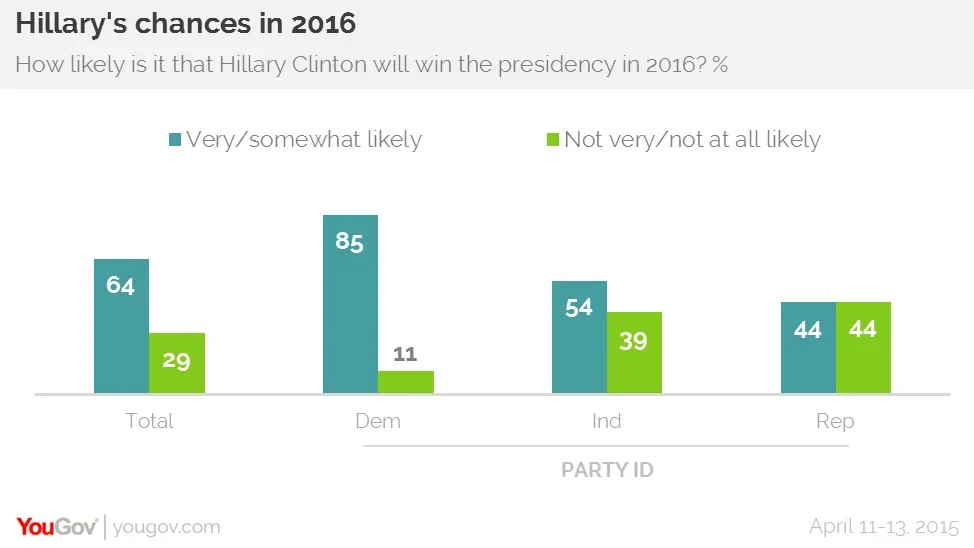Hillary Clinton isn't viewed as a particularly honest politician, but she is regarded as a strong leader
For Hillary Clinton, the launch of her 2016 presidential campaign comes at a time when she continues to be dogged by questions about her honesty – this time about the use of a personal email account when she was Secretary of State and her truthfulness and openness in reporting that use. To many Americans, this is an old story. Clinton’s honesty has been a major criticism of her detractors since the 1990’s, and it remains the most-often cited perception when those with an unfavorable view of Clinton are asked to describe her. This was also the case more than a year ago.
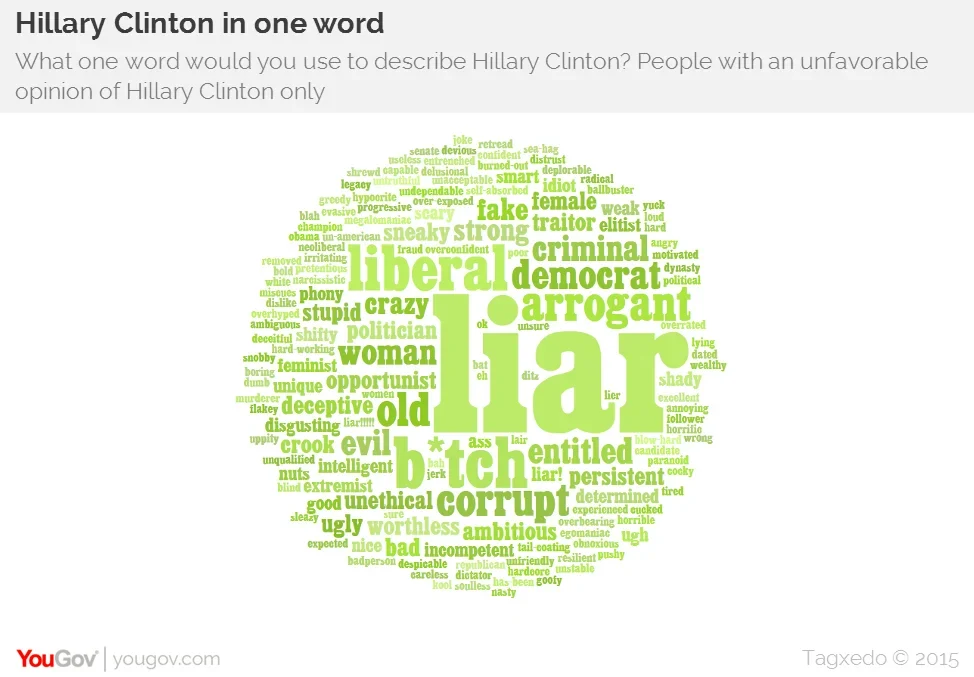
Perceptions of Clinton differ from perceptions of several of Clinton’s newly-declared Republican competitors. They are, first of all, less well-known, and what people like about them is similar to what people dislike – for example, Tennessee Senator Rand Paul’s ideology or Florida Senator Marco Rubio’s youth. But those with a favorable opinion of Hillary Clinton don’t talk about honesty: they have other things they like about her – her strength, her intelligence and her experience.
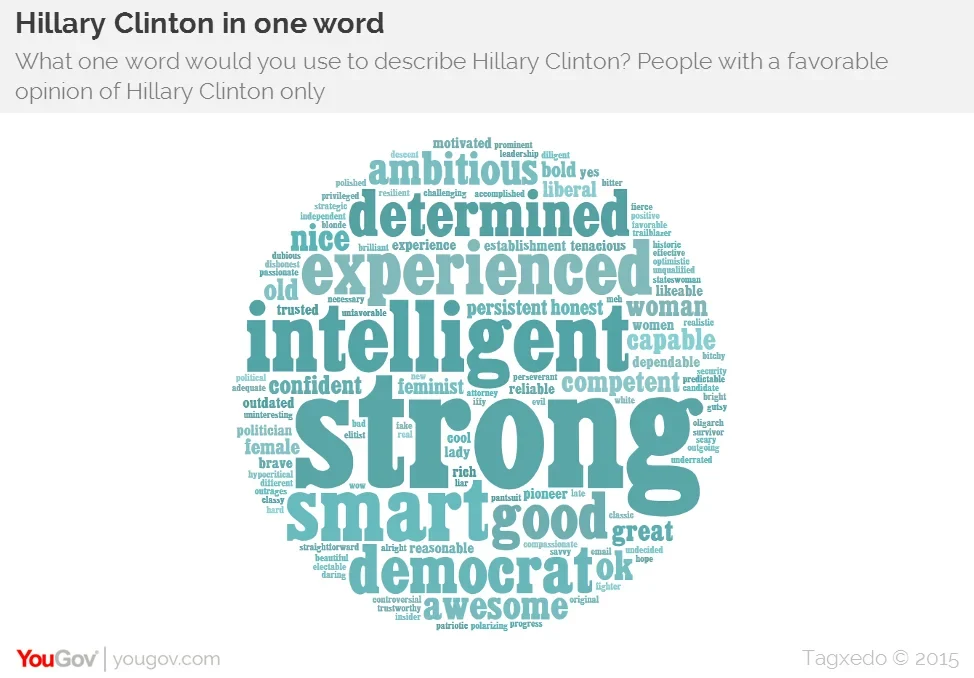
The balance at the moment when it comes to Clinton is narrowly in the positive direction: in this poll, 51% are favorable towards her, while 45% are not. One in four are very favorable, but those who are intensely opposed are somewhat more numerous: one in three have a very unfavorable view of Clinton. That includes 60% of Republicans.
This poll clearly demonstrates the two sets of images Americans have about Hillary Clinton.
For example, is Clinton honest? More than a third describe her as less honest than most people in public life – a figure that includes two-thirds of Republicans and four in ten independents. But more than half think she is at least as honest as others in public life. These ratings are less favorable than those of a number of other candidates, although the Republican contenders are less well-known than Clinton.
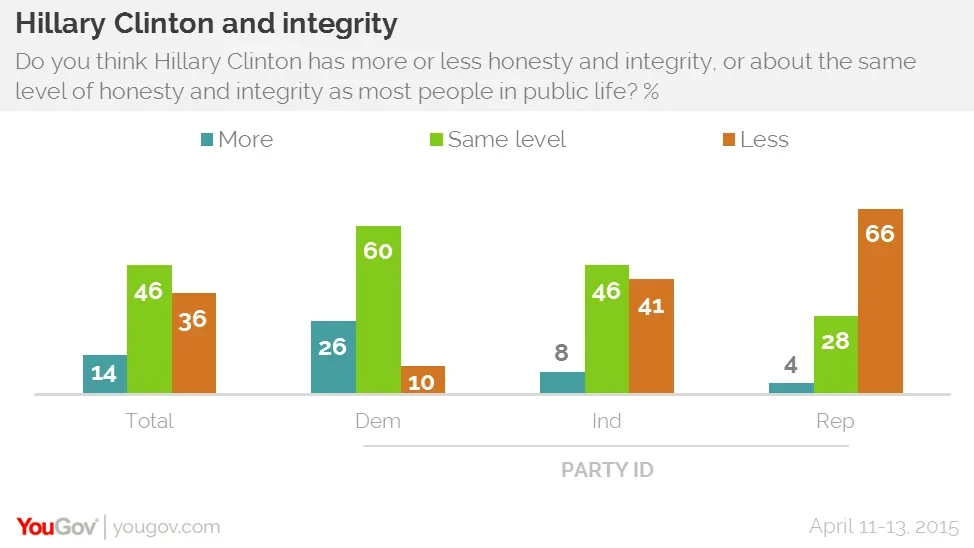
But is Clinton strong? By a wide margin, Americans say she is. And more see her as a strong leader than say that about President Obama. One of the reasons that the perception of Clinton as a strong leader is so high is that while only 18% of Republicans give Clinton a favorable rating, 42% call her a strong leader. 58% of independents and 90% of Democrats agree. Only 22% of Republicans describe Barack Obama as a strong leader.
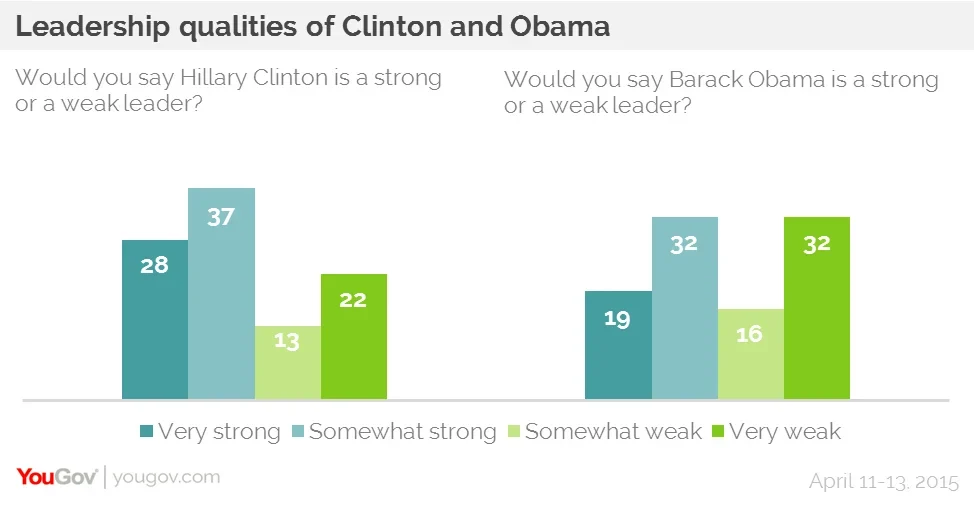
Clinton is mainly seen as a liberal, though liberals and Democrats are less likely than the public at large to describe her that way. One third overall say Clinton is not a liberal, but is either a moderate or conservative. More liberals and Democrats say that she is not liberal: 43% of self-described liberals and nearly half – 46% -- of Democrats. In fact, 14% of Democrats view her as not liberal enough. Only 7% of Democrats say she is too liberal, compared to a third of the overall public saying that.
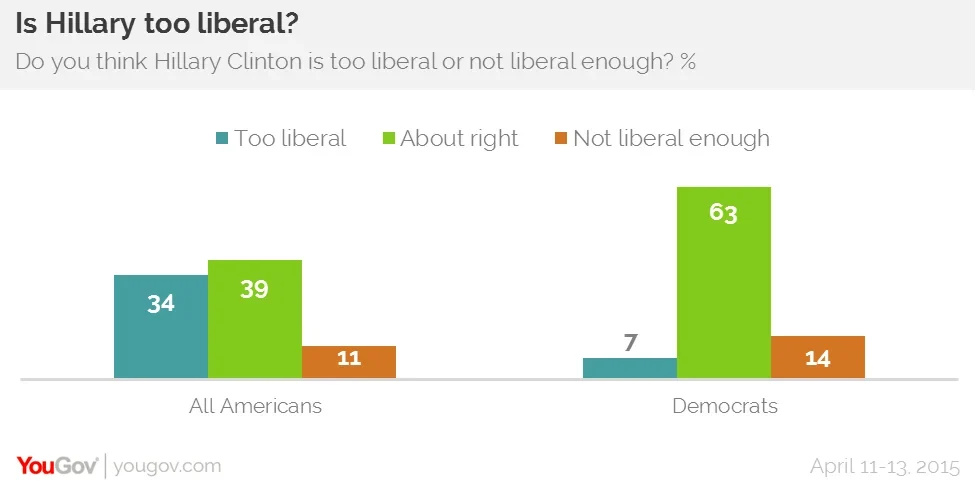
Clinton retains one characteristic in the public’s view of her that sets her apart from other possible candidates. More than half the public, including a significant minority of Republicans, view her as qualified for the job of President. There are some significant and perhaps surprising gender differences on this question, in the direction one might expect: two-thirds of women, but only half of men say Clinton is qualified (women in this week’s poll are more likely than men to describe themselves as Democrats, which explains some, though not all, of the difference).
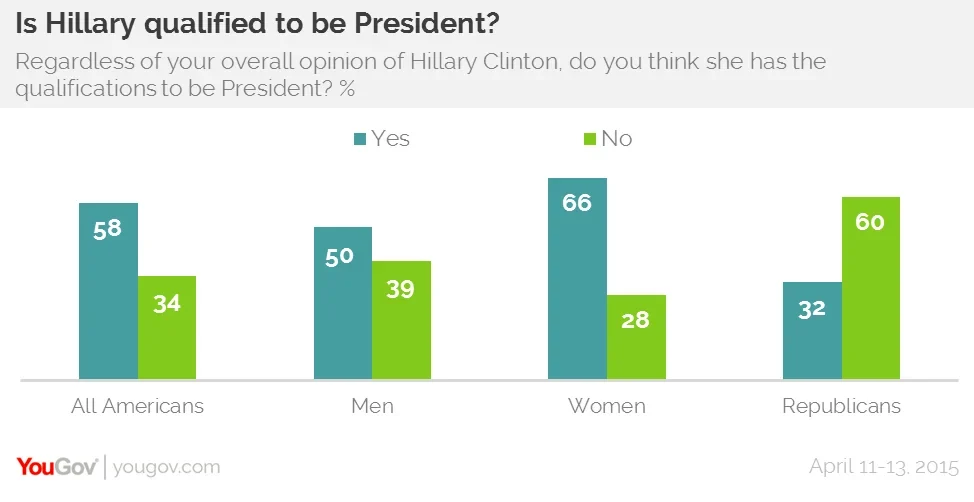
At the moment, there is no contest for the Democratic nomination. 71% of registered voters who call themselves Democrats support the former First Lady, Senator and Secretary of State for the nomination, giving her a ten to one lead over her nearest competitor. For good or ill at this stage of the campaign, Clinton is seen as the likely winner, not just of the nomination, but of the Presidency. Nearly two in three Americans say she is likely to be elected. Even Republicans are as likely to say she will be elected as to think she will not.
